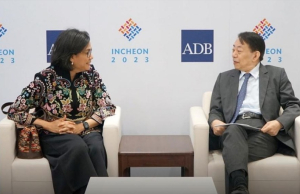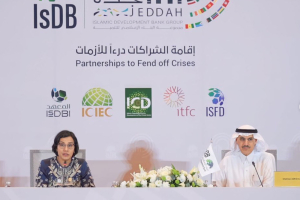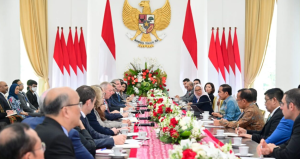Sri Mulyani and ASEAN+3 renew the Chiang Mai Initiative Multilateralism guidelines
Sri Mulyani, Minister of Finance of Indonesia together with ASEAN +3 countries, namely Japan, South Korea and China, renewed the Chiang Mai Initiative Multilateralism (CMIM) guidelines in providing liquidity support with local currency for countries experiencing balance of payments difficulties.
At the May 2, 2023 meeting, CMIM update its operational guidelines to make it possible to provide liquidity support via local currency. Both the local currency of the country itself or the local currency of other member countries (third parties). As well as assigning the deputies to evaluate the existing CMIM modalities so that the alternative facilities provided are better, faster and cheaper.
"These guidelines allow members to provide liquidity support in their own domestic currency and the local currencies of other members," said Mulyani on May 3, 2023.
Apart from strengthening CMIM, ASEAN+3 is also exploring new facilities such as fast financing, so that members can access sources of financing to address sudden balance of payments problems such as natural disasters or pandemics.
So far, CMIM through liquidity support has been provided to countries that need as much as US$ 240 billion since 2012, which previously in 2010 amounted to only half as much as US$ 120 billion.
The renewal of these guidelines was the result of the 26th ASEAN+3 Finance Ministers and Central Bank Governors' Meeting (AFMGM+3) meeting between the Ministers of Finance and Central Bank Governors in Incheon, South Korea to understand the problems faced in the region is in the midst of the latest global economic developments on May 2, 2023.
Apart from CMIM, Mulyani also discussed various topics with ASEAN+3 such as strengthening the capacity and governance of the ASEAN+3 Macroeconomic Research Office (AMRO), the Asian Bond Markets Initiative (ABMI) mid-term roadmap for 2023-2026, strengthening the role of disaster risk financing ( Disaster Risk Financing/DRF), and future ASEAN+3 initiatives.
"Moreover, the ASEAN+3 collaboration has provided an important foundation for broader efforts to ensure that ASEAN can become the Epicentrum of Growth," she said.
Currently, ASEAN's growth conditions remain strong and become an important component for world economic growth. However, ASEAN must remain vigilant of the impact of global challenges on inflationary pressures, energy and food crises, and geopolitical fragmentation.
In addition, reduce the use of US dollars and use local currency. Also, signed an MoU with South Korea regarding local currency transaction (LCT) cooperation, in order to encourage current account transactions, direct investment, and other economic and financial transactions.
"ASEAN is united as neighbors with common goals. ASEAN cooperation is important for regional development, stability and prosperity," concluded Mulyani.
Already have an account? Sign In
-
Start reading
Freemium
-
Monthly Subscription
30% OFF$26.03
$37.19/MonthCancel anytime
This offer is open to all new subscribers!
Subscribe now -
Yearly Subscription
33% OFF$228.13
$340.5/YearCancel anytime
This offer is open to all new subscribers!
Subscribe now






